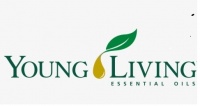NARB Recommends Young Living Essential Oils Discontinue Claims; Panel
Chaired by Scott Hamula, IMC
12/08/20
Contributed by Sandra Lowe
 A panel of the National Advertising Review Board (NARB), the appellate advertising law body of BBB National Programs, has recommended that Young Living Essential Oils, LC (Young Living) discontinue “therapeutic grade” claims for its “essential oils,” as well as unsupported health and wellness benefit claims.The case panel was chaired by IMC professor Scott Hamula.
A panel of the National Advertising Review Board (NARB), the appellate advertising law body of BBB National Programs, has recommended that Young Living Essential Oils, LC (Young Living) discontinue “therapeutic grade” claims for its “essential oils,” as well as unsupported health and wellness benefit claims.The case panel was chaired by IMC professor Scott Hamula.
The advertising at issue, as well as other claims, had been challenged by S.C. Johnson & Son, Inc. (SCJ) before the National Advertising Division (NAD) of BBB National Programs. Following NAD’s decision (Case No. 6385), Young Living appealed all aspects of NAD’s findings adverse to it.
Young Living sells “essential oils” (i.e. oils extracted from herbs, flowers, and other plants) online and through a direct-sales network. These products are considered “aromatherapy” alternative-medicine products. Among the key essential oils in Young Living’s aromatherapy products are lavender, Hinoki, Ylang-Ylang, Valerian, bergamot, davana, peppermint, rosemary, and grapefruit. Many of the Young Living products are “blends,” meaning they include two or more essential oils. Wellness benefits referred to in Young Living advertising for one or more of its aromatherapy products include:
• Promoting feelings of stability and calm
• Promoting restful sleep
• Improving clarity, focus, or alertness
• Improving mood and motivation
All of Young Living’s aromatherapy products (several hundred) are labeled “therapeutic grade.” The NARB panel concluded that the term “therapeutic grade” is unsupported and recommended that it be discontinued.
• The panel determined that the health and wellness message conveyed by the term “therapeutic grade” was not supported with the requisite scientific evidence.
• The panel concluded that the term “therapeutic grade” conveys the unsupported message that Young Living’s product is rated therapeutic under an existing set of third-party standards for evaluating essential oils.
The NARB panel also determined that Young Living’s health-related product claims lack proper scientific substantiation and recommended that they be discontinued.
• The panel accepted as valid the evidence showing that the chemical make-up/composition of essential oils can vary widely.
• The panel noted that Young Living has no information concerning the essential oils used in the published studies it relies on for scientific support for the claimed efficacy of its own products.
• The panel noted that there was no evidence in the record that blending different essential oils into one product, like Young Living does with its “blends,” does not have an impact on the claimed benefits.
Young Living stated that it will comply with NARB’s decision but noted that the company disagreed with the legal and factual findings of the original NAD case.
BBB National Programs is where businesses turn to enhance consumer trust and consumers are heard. The non-profit organization creates a fairer playing field for businesses and a better experience for consumers through the development and delivery of effective third-party accountability and dispute resolution programs. The National Advertising Review Board (NARB) is the appellate body for BBB National Programs’ advertising self-regulatory programs. NARB’s panel members include 87 distinguished volunteer professionals from the national advertising industry, agencies, and public members, such as academics and former members of the public sector.
0 Comments
https://www.ithaca.edu/intercom/article.php/20201208084703617
 A panel of the National Advertising Review Board (NARB), the appellate advertising law body of BBB National Programs, has recommended that Young Living Essential Oils, LC (Young Living) discontinue “therapeutic grade” claims for its “essential oils,” as well as unsupported health and wellness benefit claims.The case panel was chaired by IMC professor Scott Hamula.
A panel of the National Advertising Review Board (NARB), the appellate advertising law body of BBB National Programs, has recommended that Young Living Essential Oils, LC (Young Living) discontinue “therapeutic grade” claims for its “essential oils,” as well as unsupported health and wellness benefit claims.The case panel was chaired by IMC professor Scott Hamula.